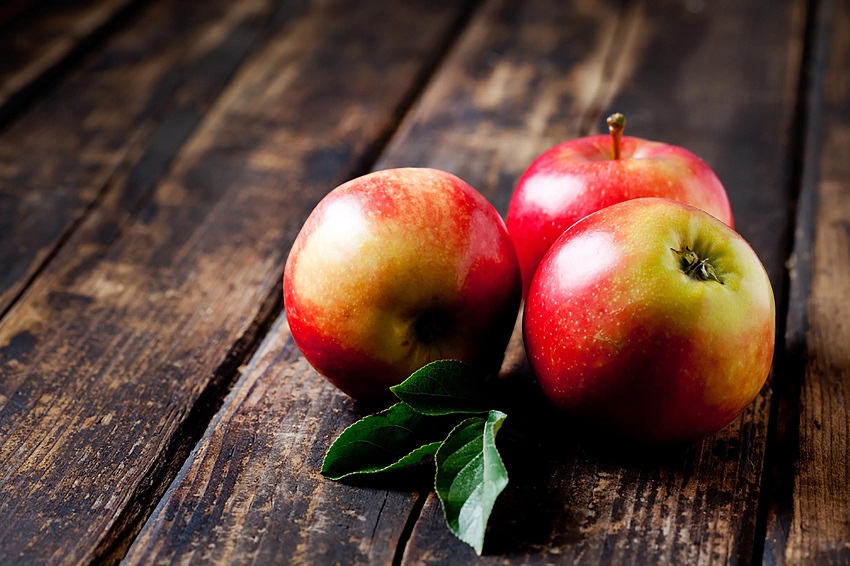
28 Jul Should We Eat Apples with Peel or Without Peel?
When it comes to eating apples, one of the age-old debates centers around whether it’s better to consume them with or without the peel. Some people argue that the peel contains essential nutrients and fiber, while others believe it may be contaminated with pesticides. In this article, we will dive into the various aspects of eating apples, exploring the pros and cons of both options. By the end, you’ll have a better understanding of which choice aligns with your preferences and dietary needs. This article is provided by anxietyreduction.com
The Nutritional Value of Apple Peel
A Fiber-Rich Package
Apple peels are packed with dietary fiber, making them a valuable part of the fruit’s nutritional profile. Fiber plays a crucial role in maintaining digestive health, regulating bowel movements, and promoting a feeling of fullness. The presence of fiber in apple peels can help improve digestion and reduce the risk of constipation, contributing to overall gut health.
An Antioxidant Powerhouse
Another compelling reason to consider eating apples with the peel is their high antioxidant content. Antioxidants are essential in neutralizing harmful free radicals in the body, which can otherwise cause oxidative stress and damage to cells. Studies have shown that the majority of antioxidants in apples are concentrated in the peel. By consuming the peel along with the flesh, you can maximize your intake of these beneficial compounds, which may help protect against chronic diseases.
Rich in Vitamins and Minerals
Apple peels also contain a variety of vitamins and minerals that contribute to overall well-being. One notable nutrient found in the peel is vitamin C, which supports the immune system and promotes healthy skin. Additionally, apple peels contain small amounts of vitamin A, potassium, and other minerals, adding to their nutritional value. Look into the apple peel benefits.
The Potential Concerns About Apple Peel
Pesticide Residue
One of the primary concerns raised by those who choose to avoid apple peels is the potential presence of pesticide residue. Apples, like many other fruits, are often treated with pesticides during cultivation to protect them from pests and diseases. While the majority of pesticides are removed during the washing process, traces may remain on the peel.
To minimize exposure to pesticides, opt for organic apples, which are grown without the use of synthetic chemicals. Washing conventionally grown apples thoroughly under running water and using a vegetable brush can also help reduce pesticide residue.
Allergic Reactions
Some individuals may experience allergic reactions to certain compounds present in apple peels. These reactions can range from mild itching or hives to more severe symptoms like swelling or difficulty breathing. If you have a known allergy to apples or experience any adverse reactions when eating the peel, it’s best to avoid consuming it altogether.
Making an Informed Decision
Ultimately, the decision of whether to eat apples with or without the peel is a personal one, based on individual preferences, health considerations, and dietary needs. Here are some factors to consider when making your choice:
Nutritional Goals
If you’re seeking to maximize your fiber and antioxidant intake, eating apples with the peel can be a beneficial choice. The peel adds an extra dose of fiber to your diet, aiding in digestion and promoting a feeling of fullness. Moreover, the antioxidants found in the peel can contribute to overall health and well-being.
Organic vs. Conventional
If pesticide residue is a concern for you, consider opting for organic apples whenever possible. Organic apples are grown without the use of synthetic pesticides, reducing the risk of exposure to harmful chemicals. However, if organic options are limited or not affordable, thoroughly washing and peeling conventionally grown apples can still be a viable option.
Personal Tolerance and Allergies
If you have a known allergy to apples or experience discomfort after consuming the peel, it’s crucial to prioritize your health and avoid eating the peel. In such cases, it may be best to enjoy peeled apples and focus on other sources of fiber and antioxidants in your diet.
In conclusion, apples are a nutritious and delicious fruit that can be enjoyed in various ways. Whether you choose to eat them with or without the peel, both options offer unique benefits and considerations. If you’re looking to boost your fiber and antioxidant intake, consuming the peel can be a smart choice. On the other hand, if you’re concerned about pesticide residue or have allergies, opting for peeled apples can address those issues.
Ultimately, the key is to listen to your body and make an informed decision that aligns with your nutritional goals and preferences. Remember that a well-balanced diet, rich in a variety of fruits and vegetables, is the foundation for good health. So, the next time you reach for that juicy apple, consider your options, and enjoy this nutritious fruit in a way that suits you best.

No Comments